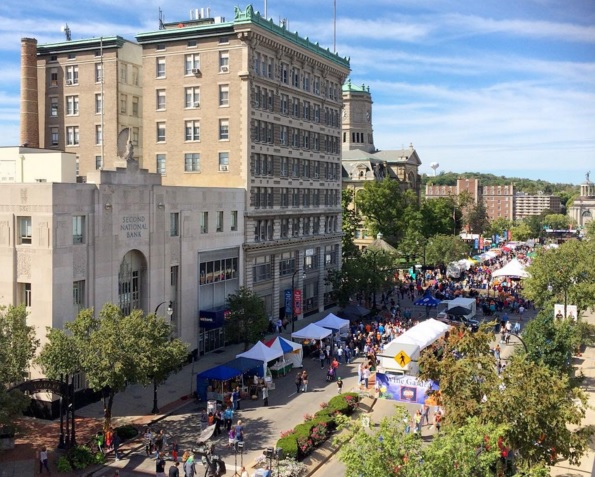With the recent announcements of two major new employers, London-based Barclaycard and Colorado-based StarTek, bringing hundreds of new jobs to Hamilton, it may come as no surprise that the city performed comparatively well on the 2015 National Citizen Survey.
Made available to residents in nearly 550 other localities throughout the United States, the NCS is considered by most counties and municipalities as the standard-bearer for collecting meaningful qualitative data and providing informative, actionable feedback.
At the survey’s conclusion, each participating community received an in-depth report that summarized their residents’ responses in three areas: community characteristics, governance and participation. In aggregate, these are compiled to give a general overview of the community’s livability and quality of life. Embedded within this, the questions collect residents’ thoughts about eight key aspects that are central to any community: safety, mobility, the natural environment, the built environment, recreation/wellness, education/enrichment, and community engagement.
While the comparison to other communities is certainly useful, what’s most telling is how the Hamilton of today compares to the Hamilton of its not-so-distant past.
When lined up against its results from the 2011 NCS, the city saw positive gains in a nearly two-thirds of the survey. Not only did the city improve upon those areas where it had been lagging for decades, it also continued to bolster its status as a high-quality, cost-effective producer of public utilities and public goods.
From its best-tasting water, its increased hydroelectric energy production, to its publicly accessible natural-gas station (the first and only in Greater Cincinnati); Hamilton has proven that it is indeed possible to effectively provide public services through economically uncertain times.
It wasn’t all great news, however, with some of the lowest scores falling within the realm of transportation. In particular, few residents responded positively to questions about public transit and traffic flow, both of which have been notoriously subpar for a city of Hamilton’s size. By comparison, nearby Middletown, which is smaller than Hamilton, has had direct access to Interstate 75 and its own four-line public bus system for decades.
Within the city proper, there are only three bridges that connect the city across the Great Miami River within the city proper, all of which carry local roads. Further complicating this is Hamilton’s lack of any highway-grade road infrastructure of any significance as well as numerous at-grade railroad crossings on both sides of the river.
The city is attempting to address some of these transportation issues by moving forward with the $29 million South Hamilton Crossing project, while also lobbying to restore regular passenger rail service.
Public transit of any kind is non-existent in Hamilton, which only frustrates this situation even more. In response to this, city leaders say that they are working to improve relationships with Butler County and other entities within the county, including Middletown and Miami University, to improve public transit offerings.
In particular, the Butler County Regional Transit Authority has essentially absorbed operation of what had been independent bus services in Middletown and Oxford in order to build connectivity among the county’s population centers. BCRTA also maintains routes to West Chester and Tri-County Mall in coordination with Cincinnati’s Metro bus system.

